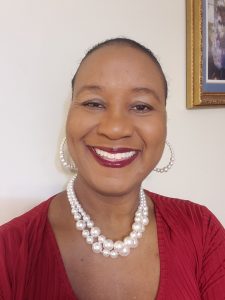by Linnie S. Carter, Ph.D., APR
HACC, Central Pennsylvania’s Community College
Harrisburg, PA
 Higher education is infamous for having a lot of meetings. Many of the meetings are too long and ineffective. At HACC, Central Pennsylvania’s Community College, my team and I are disrupting the meeting culture.
Higher education is infamous for having a lot of meetings. Many of the meetings are too long and ineffective. At HACC, Central Pennsylvania’s Community College, my team and I are disrupting the meeting culture.
Here’s how:
1. We use meeting scheduling software (such as Acuity and Calendly) and limit most of our meetings to 30 minutes. If someone wants to meet with us longer than that, they need to have a good reason for doing so.
2. We always know why someone wants to meet. If the meeting topic is relevant to us but we cannot attend a group meeting, we request a meeting recap and/or meeting recording.
3. We do not meet to provide project updates. Updates should be emailed. Instead, we meet to brainstorm, make decisions, plan initiatives and solve problems.
4. I empower my team to decline meetings that are not a good use of their time. They are required to make me aware of the declined meetings so that I can defend and support them if necessary.
5. Some of our meetings are scheduled on a recurring basis (for example, the second Thursday of each month at 2 p.m.). If there is nothing to discuss, we cancel the meetings. We do not meet just to meet.
6. HACC started having no-meeting days several years ago. These are days when most of the employees throughout the college refrain from scheduling meetings so they can focus on projects. My team and I took it a step further. We now have no-meeting days just for our team AND no-meeting weeks once a month. These days are life-changing. The amount of mission-critical work we can complete during no-meeting days is astounding.
7. I emailed my team earlier this year for ideas on how to continue to minimize the number of meetings. I created a Google doc and invited all of them to add their ideas to the document. My executive team and I discussed the ideas that were submitted, approved most of them, developed tools to operationalize the ideas and followed up with the entire team afterward. The tools included a checklist to effectively plan meetings, an enhanced meeting agenda template and email templates to use when declining meetings.
Nothing – and no one – is being sacrificed by having fewer meetings. Our work and customer service are as stellar as ever.
Linnie S. Carter, Ph.D., APR, is vice president of college advancement at HACC, Central Pennsylvania’s Community College, and executive director of the HACC Foundation.


STAY CONNECTED